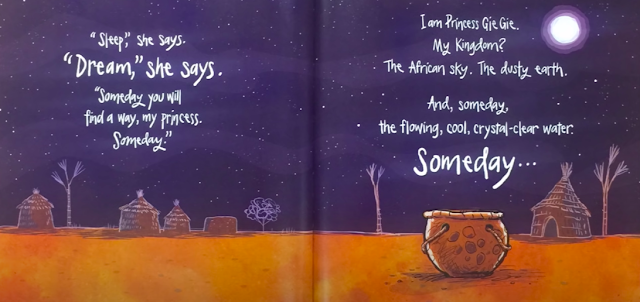It's been a journey..
During the time period I spent writing this blog, 3600 minutes have been spent by one women alone in Sub-Saharan Africa collecting water. This equates to 2.5 full days. If multiplied by the approximately 16.9 million women and young girls all over the sub-continent, the figure reaches 507 million minutes spent in water collection. I can't help but wonder how substantial of an effect this would have had on my productivity if I were to do the same, let alone imagine how much every women or girl could have achieved in that same amount of precious time- whether it be in education or formal employment.
In this blog series I covered a range of issues women disproportionately face as a result of inadequate water access, from prolonged water collection duties, to shortages in community engagement and difficulties in maintaining menstrual health. In doing so, I explored these cases under the lens of different nations such as Tanzania, Cameroon and Ghana. Of the topics covered, however, the one I felt most drawn to was menstruation. I experienced a unique attachment and sympathy as a woman myself, not able to even slightly visualise the struggles of a lack of sanitary pads and eventually having to fall back on my education. Additionally, as I come from an ethnically Indian background, I found myself able to relate on the matters of taboo and affiliated stigmas of menstruation. I am often required to remain silent about my menstrual needs, experiences and questions especially around male members of my immediate and extended family.
But whilst highlighting many major challenges, I also attempted to delve into various prospective/on-going solutions, which provided me with sheer hope and positivity to weight out the gloom. However, I realised that a core instrument of the solution band is the culture and perceptions of people. Deeply ingrained social determinants that underpin many of the issues around water act as propellers, driving the challenges down steep hills. Taking the example of women culturally expected to collect water, or remain loyal to household duties, or hide and feel ashamed of menstruating, all of which may heavily continue to exist despite all the infrastructural improvements. Hence, I strongly believe that with every development plan, an integrated education and awareness component must be held vital, working parallel along the way to help shift mindsets throughout societies.
I want to end this blog with the same hope The Water Princess from my first post has for her future as a rural inhabitant in Burkina Faso, which is to just dream, and someday the flowing, cool, crystal-clear water will flow.
Source: The Water PrincessSomeday..
It may be sooner than we think.
I hope you enjoyed reading this blog as much as I did writing it!
Farewell,
Lana




Excellent conclusion Lana! It really ties together all your previous posts and reflects your personal journey as well! I really like how youve linked to your introductory piece. Well done on your blog! I thoroughly enjoyed following it!!
ReplyDelete